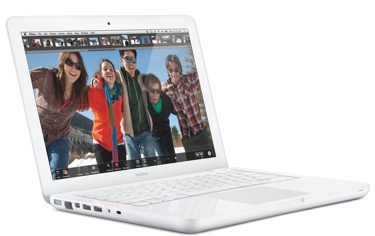Recently we looked at two competing formats for consumer movie watching (before I interrupted this series for Apple financial predictions and coverage): UltraViolet and Disney’s Keychest, that will probably help shape the future of digital media on-line (both renting and buying). The Sellers Research Group (that’s me) predicts that if Apple backs either format — and that’s a big “IF” (but more on that in a moment) — it will go with Keychest.
With Keychest, no physical possession or media will be involved. The media would live in the cloud and be available on-demand in a way similar to the way Google Docs are accessed. Users would simply enter their unique key and begin streaming their media.
“The easiest way to explain [Keyestl] is with an example and the most obvious to us is iTunes and Comcast,” says engadget (http://macte.ch/yM361). “Both companies offer video on demand and use their own DRM to prevent copying. If both participated in KeyChest — this isn’t studio based — and we bought a movie on iTunes, the next time we hit up Comcast VOD we’d be able to watch the same movie without paying again. The genius of the idea is how simple it is, basically the participants report your purchases to the KeyChest and query it to see what else you bought.”
Sounds like Keychest and Apple might make a good fit, right? Perhaps, but I think that, ultimately, Apple will come out with its own version of the technology — one that will compete with UltraViolet, as well — that will tie in with the ginormous data center it’s building in North Carolina.
By my scenario, said data center would work with Sandy Bridge equipped Mac and iOS devices to allow you to rent and/or buy true high def movies (1080p) for play on your Apple devices, TV and, yes, Windows systems. I think hints of this are already visible and that Apple is having some very hush-hush talks with movie studios.
Sony Pictures Home Entertainment is quietly testing new features in iTunes-available versions of its films “with an eye on a future in which digital distribution offers a more compelling product than physical discs,” reports “paidContent.org” (http://macte.ch/0xpAC). Buy the Will Ferrell comedy “The Other Guys” and you’ll notice three extras that can’t be found on DVD or any other digital platform, the article says.
A search button allows you to input a word, and any mention of it in the script will be retrieved along with a link to the exact moment in the movie in which the line was uttered. A “clip & share” function lets the viewer take select scenes and post them to social networks.
There’s also a playlist with songs from the film, which are linked to to places on iTunes where those songs can be purchased. The same features are also found on Sony’s “Salt” and “Resident Evil: Afterlife.”
Studios like Sony want to make the case that ownership of digital copies of movies and TV programming is worth consumers’ dollars. Sure, iTunes Extras aren’t available yet on the Apple TV or iPad. However, it’s only a matter of time before this new breed of extras pop up on other devices and digital storefronts.
And since I’m speculating, let me also add that if Apple’s data center/Keychest-UltraViolet competitor combo is a big success, Apple will have more clout and a surplus of industry goodwill. This means the company will, in time, launch its own a la carte service that will compete with cable and satellite companies. In other words, Apple will eventually offer what all of us have been wanting for a loooong time: a service in which we can subscribe to a menu of TV channels we want and not have to buy entire packages as foisted upon us by the cable and satellite companies.
— Dennis Sellers
dsellers@applecentral.com




